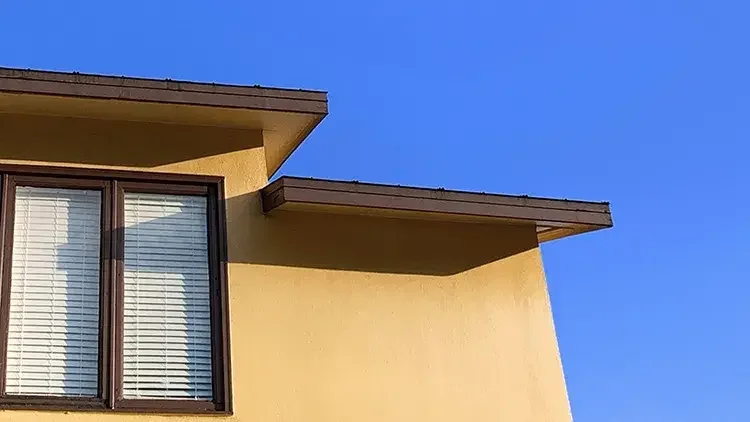An easement in real estate is a property right that allows another individual, business, or government entity access to a certain part of your property. If you are purchasing real estate and discover an easement, it’s essential to know what it means, what portion of your property it applies to, and how it impacts your use of space.
Understanding easements and their scope helps you advocate for your property rights, enables informed decision-making, and ensures you can fully enjoy your space.

What is an easement?
A property easement grants someone else—like a neighbor, utility company, or government agency—the limited right to use your land for a specific purpose. Easements can be expressed or implied. An express easement is a formal written agreement, while an implied easement is more of a verbal agreement that both parties agree to, without any official recording.
There are also negative and affirmative easements:
- An affirmative easement grants someone, who is not the owner, access to a land for a specific use.
- A negative easement imposes restrictions on how a title owner can use their space. For instance, a negative easement can prohibit planting of trees in the easement area that can obstruct another's mountain view. Negative easements are often used to preserve natural or historical sites.
A good example of an easement is one that a utility company has for placing cables, pipes, or other equipment under or over the property to allow property owners to use their utilities.
There are many types of easements, each affecting how you can use your space.
Easement appurtenant
"Appurtenant" is a legal term that means “belongs to”. An easement appurtenant is tied to a piece of property or land, not the owners. An easement appurtenant is permanent, stays with the property, and gets transferred in the deed to the new property owner, which they have to accept. Generally, an easement appurtenant occurs when two properties are linked together, such as when your house is connected to a public park, and the easement grants public access to the park.
Easement by necessity
Easements by necessity—aka, access easements—are granted when one party needs to use or access another person's land for a valid and practical need. For example, if you own a piece of land that's only accessible by a dirt road through your neighbor's property, you may be granted an easement by necessity. This easement may cease to exist if the city creates a new public road that allows direct access.
Easement in gross
An easement in gross is an informal verbal agreement negotiated with the property owner. If you've given your neighbor access to an area of your property for a specific purpose, and it's not in the property deed, this type of easement is an "easement in gross." For example, you may allow your neighbor to use your property to access the lake that's only behind your house. This easement does not transfer to a new buyer. This means that if the neighbor moves, you don't have to grant the same easement, or any easement at all, to the new owner.
Utility easement
Utility easements are granted to utility companies by property owners to provide access to necessary utilities and improve the community. Private property owners cannot block or obstruct existing utility easements. For instance, if a tree in your yard is causing power trips, the utility easement gives the electric company the right to trim the tree.
Prescriptive easement
Prescriptive or presumed easements allow an individual to use someone else’s property without the owner’s permission. Prescriptive easements are created by law and established when the person using the property is doing so openly and continuously for a period defined by state statutes. Each state has its own “statutory period.” In New York, the time period is 10 years.
Here's an example: Your dad's backyard has a small private road that serves as a shortcut to the neighborhood bus stop. Although he never gave formal permission, he doesn't mind the community folks using the path. Over the next 10 years, the path shows clear signs of regular use, like flattened grass and a worn walkway. When your dad dies, you inherit the house and decide to block the dirt path. The neighbors may claim a prescriptive easement, allowing them to continue using the shortcut.
Private vs. public easement
The main difference between public and private easements is who benefits from the easement. In a private easement, only specific individuals gain rights to access a space. An owner can create and sell a private easement, making it a more exclusive form of property right. With a public easement, the general public gets access and rights to use an area—such as a street, sidewalk, or park.
How to find out if there's an easement on a property
To check for an easement, you can take the following seven steps:
- Step 1: Identify the property by using its legal description and address.
- Step 2: Contact the utility companies to see if they have any easements on your property.
- Step 3: Check with the county clerk or county land records office and search all records (deeds and parcel maps) to find out whether the prior deed shows an easement.
- Step 4: Obtain a professional land survey to see if there are any physical signs of easements (utility lines or pathways) and where they're located.
- Step 5: Get a title company to do a title search, which will uncover any easements and other burdens on the property.
- Step 6: Speak to zoning and planning authorities as they might have recorded easements that affect the property.
- Step 7: Make sure to get a warranty deed from the owner, as it must show any easements on the property.
Sometimes there might be an implied easement that isn't listed on any deed, legal document, or written agreement. Therefore, before buying property, it's important to hire a real estate attorney to help you check if there's an easement. Attorneys can interpret complex legal statements and ensure no easements are overlooked.
The consequences of having an easement on your property
While an existing easement won’t affect your property ownership, it can restrict how you can use your space. For instance, you might not be able to build that outdoor deck or an in-ground swimming pool if there are pipes and cables in the way.
If there's an easement on the property, you'll want to check if you're the easement user, known as the dominant estate, or if you're the property owner who must allow your neighbor to use your property, known as the servient property.
Let’s look at a few scenarios of how an easement may impact your property.
- Less control over access and usage. Easements impact who has access to your property. The servient property owner cannot block the use of the easement.
- Maintenance costs. Sometimes the servient estate will be responsible for the repair and maintenance cost of the easement, creating extra financial burden.
- Transfer with property. Most easements continue even after you sell the property.This could impact the marketability of your place as a new owner might not agree to the easement.
- Decrease in property value. In rare circumstances, having an easement can sometimes negatively affect the value of your property. Not everyone wants to buy property with an easement on it, so the property with the easement may take longer to sell. Likewise, if the utility company has an easement to erect poles or power lines, your property value could take a nosedive.
Can a property owner block an easement?
If the easement is legal, the “servient estate” can't block it. If you and your neighbor share a driveway due to an easement, you can't stop your neighbor from using the driveway.
However, if the easement is no longer necessary or creates a significant burden, the owner can petition to have the easement removed.
The servient estate can also take legal action if the dominant estate is not using the easement for the stated purpose. For instance, if the easement holder uses the driveway illegally, you can take them to court.
How to remove an easement from your property
It's possible, in some cases, to remove an easement from your property. Some of the ways to remove an easement include the following:
- Seek legal advice. It’s best to consult a lawyer so you can fully understand the ways you can legally remove an easement. An attorney may point out that the easement agreement has expired and therefore you don’t need to take further action.
- Negotiate with the easement holder. Consider talking to the dominant property and see if they are willing to sign a release removing the easement. Another option is to ask them to give up the easement by transferring the easement in a deed to you (the servient estate).
- Buy the easement. This is a costly option, but the servient property owner can purchase the dominant estate, thereby removing the easement.
- Bring a lawsuit to contest the easement. If you discover an easement is being misused, you can take legal action to have it removed.
How to determine compensation for easement
In some circumstances, property owners can receive compensation for an easement. The compensation amount is tied to fair market value and is influenced by the type of easement, size of easement, and restrictions of use. Speak to an appraisal expert or real estate lawyer to determine the market value of your property without the easement.
You can also look at similar easements in the area to estimate what it may be worth. For instance, if you find similar easements to decrease property value by a certain amount, you can use that as a starting point for compensation negotiations.
FAQs
Can I refuse a utility easement?
Technically, you can, but be prepared for financial or legal issues if the utility company decides to go to court. If you have concerns about utility easements on your property, speak to a real estate attorney to understand the best course of action.
Does an easement affect my ability to sell property?
While an easement usually doesn’t affect your property’s value, it can make it difficult to sell. For instance, unclear boundary terms or significant restrictions, may deter buyers. Some potential buyers may reject the easements associated with the property, so you’ll have to wait for one who accepts them.
Can you build on an easement?
No, you can’t build on an easement as it’s a legal right granted to the dominant party. Purposely building, blocking, or restricting an easement can lead to a lengthy and expensive court battle.
Can you contest an easement in court?
Yes, you can with a valid reason. Valid reasons could be a lack of documentation or easement expiration (it’s no longer necessary). But be prepared that challenging easements in court is a tricky and complex process where a major burden of proof falls on the contesting party.
A real estate attorney can look at your dispute and tell you if you have a valid case. They can also advise you on alternative ways to resolve any easement issues.
What is adverse possession?
Adverse possession is a type of negative easement in which the dominant estate's intent and actions are usually to take full ownership of the space. Adverse possession usually involves some sort of trespassing for a lengthy period.
Ronna L. DeLoe, Esq. contributed to this article.

